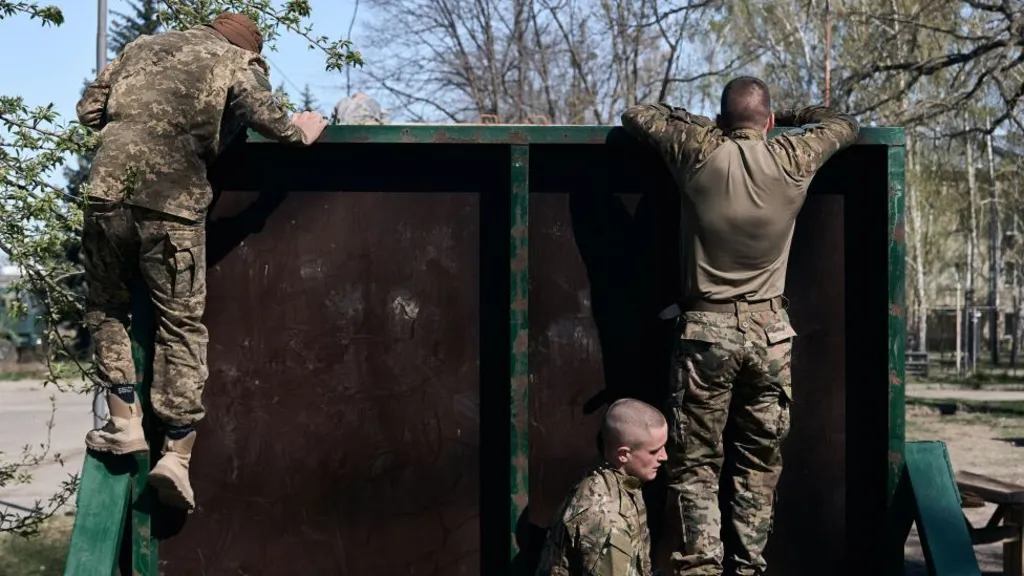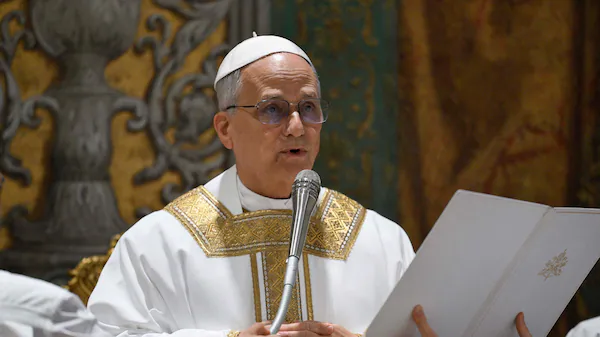
Ukraine is suspending consular services for male citizens aged 18 to 60 abroad as part of a drive to beef up numbers joining the military.
Foreign Minister Dmytro Kuleba said protecting the rights of Ukrainians was still key but “the main priority is to protect our homeland from destruction” during Russia’s full-scale invasion.
Russia has a big advantage in numbers and weapons on the battlefield.
Kyiv recently lowered the age of mobilisation from 27 to 25.
After “inviting” Ukrainian men abroad to return home last December, it seems the government wants to apply more pressure, by denying them potentially vital services overseas.
With the recent passing of the controversial new mobilisation law, Kyiv seems to be past the point of caring about unpopular decisions.
Mr Kuleba wrote on social media that “fair attitudes” would be restored for Ukrainian men of military age both at home and abroad.
He complained that at the moment it appeared that men of conscription age were leaving their country, then expecting to receive services from the state: “It does not work this way. Our country is at war.”
It is not yet clear who Ukraine’s new consular restrictions will apply to, with many Ukrainian men abroad having legitimate exemptions from fighting such as being disabled or having three or more children.
A letter signed by a senior foreign affairs official suggested documents would only be issued by consulates to Ukrainian men to enable them to return home. Separately, the state passport service said the issue of biometric passports outside Ukraine had been put on hold “due to technical reasons”.
Ukrainian President Volodymyr Zelensky has said a full-scale Russian offensive is expected in the coming weeks after Ukraine’s loss of the city of Avdiivka during the winter.
The military said its forces had been involved in 86 combat engagements on Monday alone.
The US Senate is expected to approve a $60.8bn aid package for Ukraine on Tuesday, bringing to an end a six-month delay in financial support. However, Kyiv is in dire need of new manpower to defend a front line that stretches more than 1,000km (620 miles).
Posters have appeared on the streets of Ukrainian cities portraying soldiers urging their compatriots to sign up to defend their country.
But those who want to volunteer for the military did so long ago and are either dead, wounded or exhausted on the front lines.
Instead of focusing on a rotation model, ministers are saying everyone should do their bit, for as long as it takes.
However, the main criticism of Ukraine’s new mobilisation law is the lack of a limit on time served, which some argue takes away what little incentive there was for men who did not want to fight anyway.
A combination of this new law, hostile front lines and a recruitment system riddled with corruption claims has compelled men of fighting age to escape the country in their hundreds of thousands.
The UN’s refugee agency estimates that more than 6.4 million Ukrainians have fled their country, many of them to countries in the European Union. The EU’s statistics agency estimates that 20.6% of the estimated 4.3 million Ukrainians currently living within its borders are men.
Meanwhile, a survey by the Rating group in Ukraine suggested that 62% of Ukrainians were prepared to fight for their country at a time of war, while a third said they were not. It said that was the highest score among European nations.


